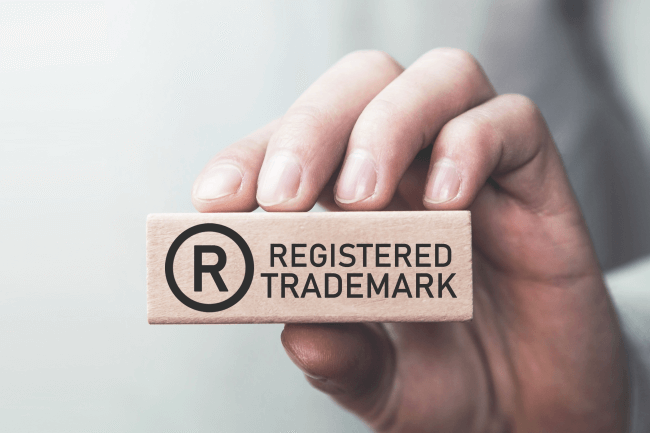Trademark Certificate
In the dynamic landscape of business, establishing a unique identity is paramount. A Trademark Registration Certificate serves as a legal testament to this uniqueness, offering businesses exclusive rights to their distinctive symbols, names, or logos. This article delves into the significance of trademark certificates in India, elucidating the registration process, associated benefits, and essential considerations for businesses.
Understanding Trademarks
A trademark is a recognizable sign, design, or expression that identifies products or services of a particular source from those of others. In India, trademarks are governed by the Trade Marks Act, 1999, which provides legal protection and ensures that the owners have exclusive rights to use their registered marks.


Significance of a Trademark Registration Certificate
Obtaining a Trademark Registration Certificate is a pivotal step for businesses aiming to protect their brand identity. This certificate is a legal document issued by the Indian Trademark Registry, certifying the successful registration of a trademark. It serves as proof of exclusive ownership and grants the owner the absolute right to use the trademark for their goods and services.
Benefits of Trademark Registration

Exclusive Rights
The owner gains exclusive rights to use the trademark nationwide.

Legal Protection
Registered trademarks are protected under the Trade Marks Act, 1999, allowing owners to take legal action against infringement.

Brand Recognition
A registered trademark enhances brand recognition and trust among consumers.

Asset Creation
Trademarks are intangible assets that can be sold, licensed, or franchised.

Global Protection
A registered trademark can serve as a basis for obtaining registration in other countries.
Did You Know?
The Trade Marks Registry in India was established in 1940 and administers the Trade Marks Act, 1999. It acts as a resource and information center, facilitating matters related to trademarks in the country.
Trademark Registration Process in India
The process of registering a trademark in India involves several steps:
1
Trademark Search
Conduct a comprehensive search to ensure that the proposed trademark is unique and does not infringe on existing trademarks.
2
Filing Application
Submit the trademark application in the prescribed format, providing details such as the applicant's name, address, and a clear representation of the trademark.
3
Examination
The Trademark Registrar examines the application to ensure compliance with the law and checks for any conflicts with existing trademarks.
4
Publication
If the application passes the examination, the trademark is published in the Trademark Journal to invite objections from the public.
5
Registration
If no objections are raised within the stipulated period, or if objections are resolved in favor of the applicant, the trademark is registered, and a Trademark Registration Certificate is issued.
Documents Required for Trademark Registration
The documents required for trademark registration may vary depending on the type of applicant:
- Individual/Proprietorship: PAN card, Aadhaar card, and a copy of the trademark to be registered.
- Partnership Firm: Partnership deed, PAN cards of all partners, and a copy of the trademark.
- Company: Incorporation certificate, PAN card of the company, and a copy of the trademark.
It’s essential to ensure that all documents are accurate and up-to-date to avoid delays in the registration process.


Fees for Trademark Registration
The fees for trademark registration in India are as follows:
- Individual/Startup/Small Enterprise: ₹4,500 for e-filing; ₹5,000 for physical filing.
- In All Other Cases: ₹9,000 for e-filing; ₹10,000 for physical filing.
These fees are applicable per class and per mark.
Duration and Renewal of Trademark
A registered trademark in India is valid for ten years from the date of registration. It can be renewed indefinitely for successive ten-year periods. It’s crucial to file for renewal before the expiry date to maintain continuous protection.

Infringement and Legal Remedies
Trademark infringement occurs when an unauthorized party uses a mark that is identical or deceptively similar to a registered trademark, leading to confusion among consumers. In such cases, the trademark owner can seek legal remedies, including:
- Injunctions: Court orders to prevent further infringement.
- Damages: Compensation for losses suffered due to the infringement.
- Account of Profits: Recovery of profits made by the infringing party.
Did You Know?
A registered trademark not only protects your brand but also adds value to your business by creating a recognizable identity that can attract and retain customers.
Conclusion
A Trademark Registration Certificate is more than just a legal formality; it’s a strategic asset that safeguards your brand’s identity and ensures exclusive rights to your unique symbols, names, or logos. By understanding the registration process, associated benefits, and legal protections, businesses can effectively navigate the complexities of trademark registration in India.
At Corpmate, we specialize in providing comprehensive trademark registration services, guiding businesses through each step to ensure seamless and efficient protection of their intellectual property.
Frequently Asked Questions (FAQs)
A trademark is a special type of symbol, word, or phrase that identifies the origin of products and services. It’s important to protect your brand identity and a trademark also helps build trust in consumers.
Yes! You can apply for trademark registration online with Corpmate. We are here to handle everything digitally and make it easy and convenient.
This is the most asked question from many consumers. Trademark registration costs vary depending on the type of business and number of classes. You can contact us for a detailed pricing breakdown +91 98884 06780
If your trademark application is rejected then don’t worry corpmate is here to assist you. We will respond to objections and reapply if necessary to improve approval chances.
